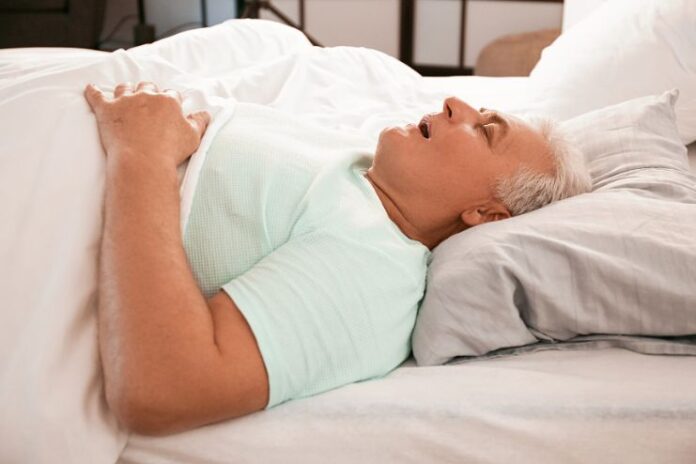Affiliate Disclaimer
Some links in this article are affiliate links. We may earn a small commission if you make a purchase through these links, at no extra cost to you. We only recommend products we find useful to our readersIf you’ve ever struggled with snoring, woken up with a dry mouth, or felt tired despite having a whole night’s sleep, you must check on your breathing habits. Breathing patterns are often the primary reason you experience these issues. For this, mouth taping has taken over the internet, promising a better sleep quality. However, we must examine whether this is a fleeting trend or a solid one backed by science.
Many people prefer mouth taping, as it encourages nasal breathing, which they claim leads to better sleep quality, reduced snoring, and improved oxygen intake. In this article, let us understand if this wellness fad is worth it, if it helps, then in what ways, or if it is just a mere passing trend.
Read More: How Hormones Impact Your Sleep Cycle At Every Stage.
What Is Mouth Taping for Sleep?
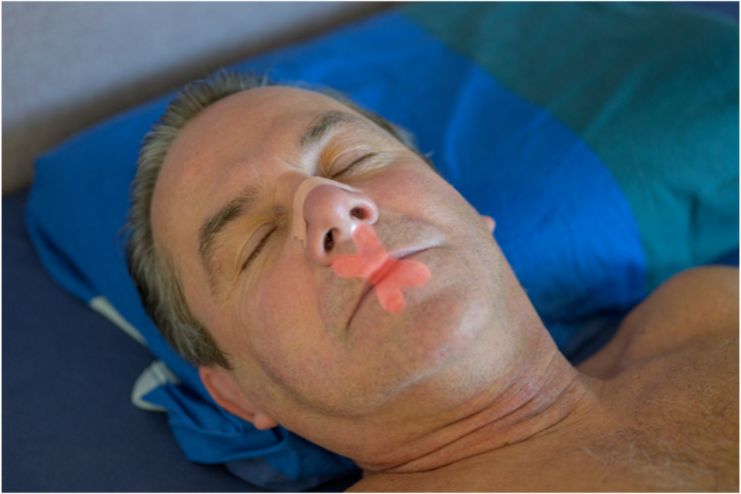
Mouth taping is a technique where you place a piece of tape over the lips to keep the mouth closed during sleep, promoting nasal breathing. There are plenty of varieties of mouth tapes available:
- Specialized Sleep Tapes—These tapes are particularly designed for sleep use and offer a gentle adhesive. They help minimize skin irritation and are also easy to remove the next morning. Many of these tapes are hypoallergenic and made with breathable materials to reduce discomfort.
- Medical Tapes—Medical tapes include options such as 3M silicone hypoallergenic tape, which is commonly used for medical purposes and can be repurposed for mouth taping. These medical tapes have strong adhesion but are designed to be less irritating for sensitive skin.
- DIY Options—Some individuals prefer DIY options as they are more affordable. However, these tapes are not always skin-friendly and may cause irritation or leave residue, making them difficult to remove. That is why choosing a tape with a mild adhesive is essential to avoid discomfort.
Read More: Sleep Solutions For Everyone: Family Friendly Tips For Better Rest.
The Science Behind Nasal vs. Mouth Breathing
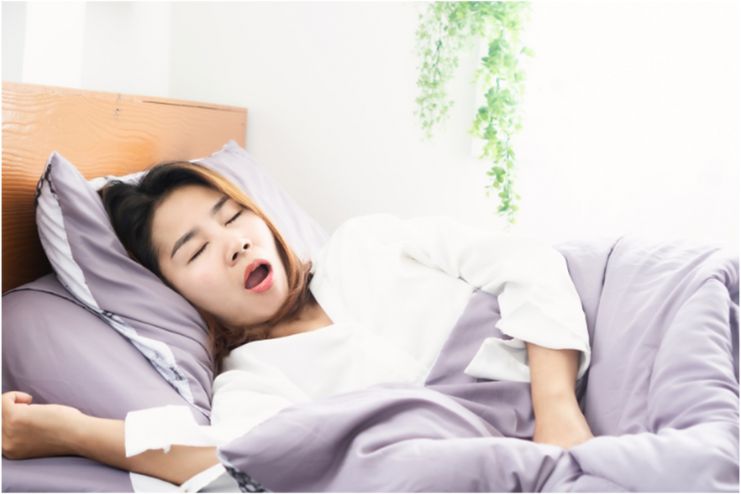
Breathing through the nose is not just a habit. It plays a crucial role in oxygenation, airway health, and overall sleep quality. Nasal breathing naturally filters, humidifies, and warms the air before it enters the lungs, promoting efficient oxygen exchange and reducing airway resistance. This also helps optimize lung function and supports deep, restful sleep by ensuring a steady oxygen supply to the brain and body.
On the other hand, continuous mouth breathing might signal several sleep-related issues, including:
- Increased Snoring—Open-mouth breathing causes vibrations in the throat and soft tissues, which can lead to loud and disturbing snoring during sleep. Habitual snoring may also contribute to inflammation and airway obstruction in the long run.
- Dry Mouth and Bad Breath—Mouth breathing reduces saliva production, an essential factor for neutralizing bacteria and promoting good oral health. Chronic dryness in the mouth can increase the risk of cavities, gum disease, and persistent bad breath.
- Higher Risk Of Sleep Disorders—Studies show that habitual mouth breathing can lead to disturbed sleep, sleep apnea, and lower oxygen levels, which in turn lead to daytime tiredness and loss of focus.
A study published in Scientific Reports shows how nasal obstruction hurts sleep quality and oxygenation, emphasizing the importance of maintaining nasal breathing during rest.
Potential Benefits of Mouth Taping
A few potential benefits of mouth taping are:
- May Reduce Snoring – When we keep our mouths closed, nasal breathing is encouraged, reducing the intensity of snoring. This paves the way for quieter, more restful sleep for the individual and their partner.
- Prevents Dry Mouth – Chronic mouth breathing often leads to dry mouth, which causes discomfort and increases the likelihood of oral health issues like tooth decay and gum infections. Keeping the mouth closed helps retain moisture and supports overall dental hygiene.
- Could Aid Mild Sleep Apnea – Research from the Journal of Clinical Sleep Medicine, carried out on 20 people suffering from obstructive sleep apnea (OSA), found that 13 people benefitted from mouth taping. This research suggests that mouth taping may reduce apnea episodes in individuals with mild obstructive sleep apnea (OSA). While it does not replace medical treatment like CPAP (continuous positive airway pressure) therapy, it may help some people experience less airway collapse during sleep.
- Improves Sleep Efficiency—Mouth taping may improve sleep continuity by promoting airflow and reducing nighttime breathing disturbances. This means fewer nocturnal awakenings, improved oxygen delivery, and overall rest. These lead to higher energy levels and better focus the next day.
Risks and Safety Concerns
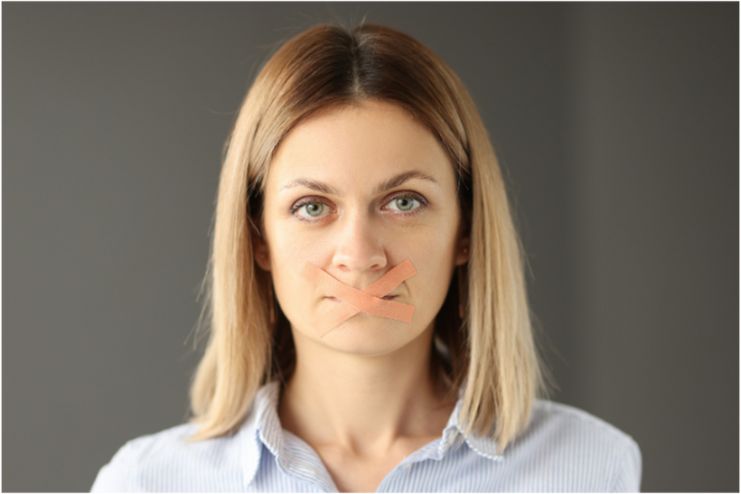
Mouth taping, though it has promising benefits, may not be suitable for everyone. Some potential risks include:
- Difficulty Breathing—For people with nasal congestion, allergies, or a deviated septum, breathing correctly through the nose can be difficult. This can make mouth-taping extremely unsafe and impractical.
- Worsening Sleep Apnea – Individuals with moderate to severe sleep apnea should avoid mouth taping, as it could further obstruct the airway and lead to less oxygen during sleep.
- Skin Irritation – The adhesive from the mouth tape can cause irritation, red spots, or even allergic reactions to the skin. However, using medical-grade hypoallergenic tape can help minimize this risk.
- Potential Discomfort Or Panic – Some individuals may feel claustrophobic or anxious when their mouth is taped shut, making it difficult to fall or stay asleep.
Read More: The Importance Of Sleep Hygiene: Creating Your Ideal Sleep Environment.
How to Use Mouth Taping Safely?
If, after understanding the potential benefits and risks of mouth taping, you decide to try it, follow these guidelines for safety and effectiveness:
- Choose the Right Tape: Opt for the right tape, as this can make or break your decision of using a mouth tape. Always opt for hypoallergenic, medical-grade tape to minimize skin irritation.
- Apply Correctly: Apply the tape correctly by placing a small strip vertically over your lips and not sealing them completely. This allows for some airflow if needed.
- Ensure Nasal Patency: If you have nasal congestion, use a saline spray, a nasal dilator, or a humidifier before taping to ensure you can breathe comfortably.
- Monitor Your Response: Start by tracking and testing mouth-taping for short periods while awake. This helps in assessing comfort before using it overnight.
- Consult A Doctor: If you suffer from breathing difficulties, nasal obstruction, or suspect you have sleep apnea, consult a medical practitioner before trying mouth taping.
Expert Opinions & Scientific Research
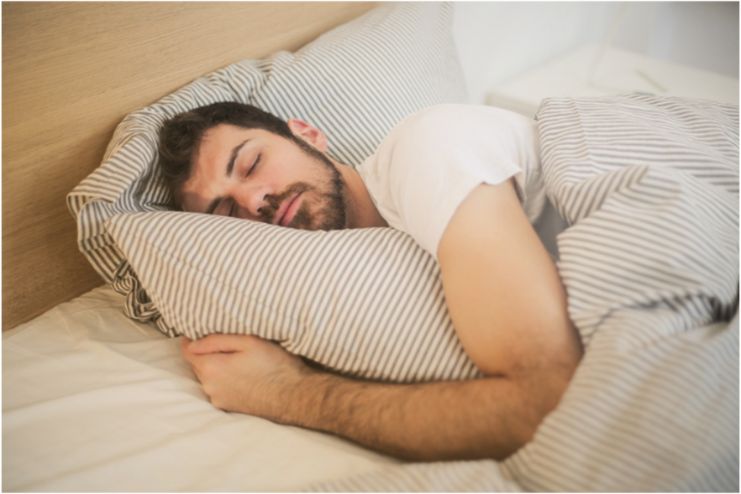
Medical professionals advise being cautious about mouth taping. Dr. Jabeen Begum from WebMD shares her views and acknowledges the benefits of nasal breathing but warns that it lacks sufficient clinical validation. She believes that mouth taping could pose risks for individuals with pre-existing conditions.
However, mouth taping may yield promising results for mild obstructive sleep apnea patients. While nasal breathing is beneficial, mouth taping should not be replaced with medically proven sleep apnea treatments such as CPAP therapy.
Read More: Losing Tongue Fat Might Improve The Condition Of Sleep Apnea.
Final Verdict: Should You Try It?
Mouth taping may benefit those who experience mild snoring or dry mouth due to habitual mouth breathing. However, you cannot substitute for a medical treatment. If you wish to try mouth taping and suffer from conditions such as sleep apnea, nasal congestion, or any breathing difficulties, consult a healthcare professional.
Moreover, monitoring your feelings after you try mouth-taping is also essential. If you experience discomfort, unusual tiredness, or breathing difficulties, you must address them, and then you must avoid mouth taping.
All in all, using mouth tapes seems promising, but use your intellect and judgment to determine whether it benefits you.
Conclusion
We understand the hype around mouth-taping. However, it is advisable to exercise caution and try only if it truly aligns with your body’s needs. Focus on safe, evidence-based sleep practices, as these are key to improving breathing and overall sleep quality. For maximum results, try to consider holistic approaches, including nasal dilators, improving nasal hygiene, and having a regular sleep routine.
If there are no health restrictions, would you like to try mouth taping?
In this Article













